About the Congress
ceecon, the DGO-Congress of Central and East European Studies, is the largest multidisciplinary congress on Central and Eastern Europe in the German-speaking realm. It was established in 2022 as a cooperation between the German Association for East European Studies (Deutsche Gesellschaft für Osteuropakunde / DGO e.V.) and the Institute for East European Studies (Osteuropa-Institut / OEI) of Freie Universität Berlin. In 2024, the Centre for East European and International Studies (Zentrum für Osteuropa- und internationale Studien / ZOiS) joint ceecon as a cooperation partner.
As an exchange forum for discussing latest research findings, it is an important venue for the international research community on the region. Seven discipline-specific sections tackle research questions from a broad variety of topics and methodological approaches. Plenary sessions offer academic exchange on topics relevant to all scholars from the field. A special time slot is reserved for the presentation of research projects by junior scholars.
The main goal of ceecon is to address topics and methodological approaches with a special focus on interdisciplinarity. Therefore, the section are organized thematically. In this way, we would like to promote interdisciplinary exchange and enable discussions about topics relevant to all scholars in the field.
The congress is also accompanied by a cultural program.
Some impressions from the first ceecon in 2022:
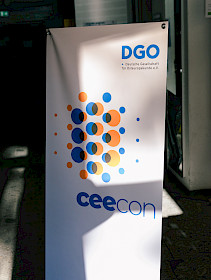
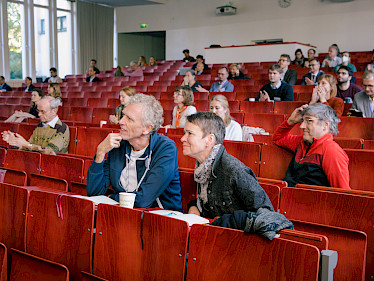
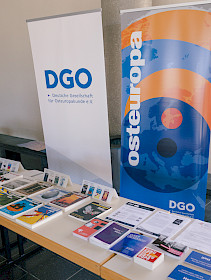
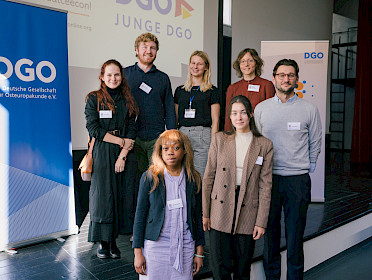
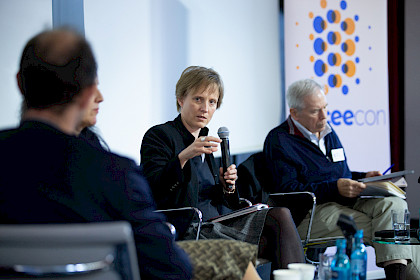
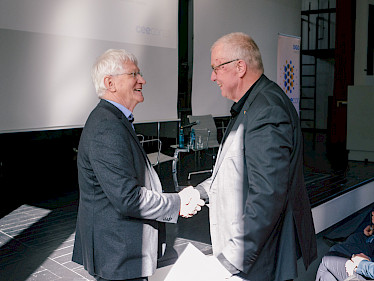
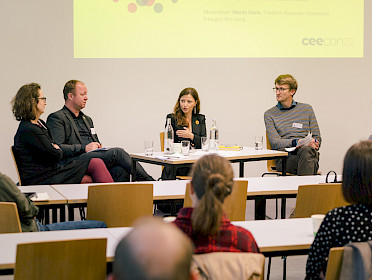
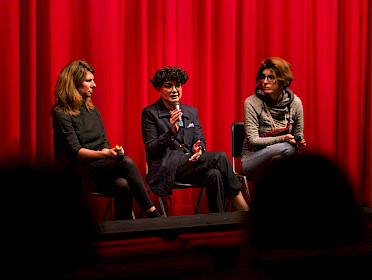
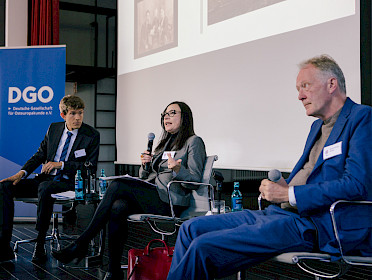
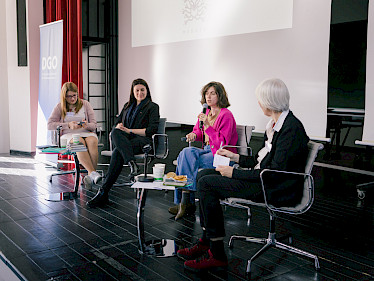
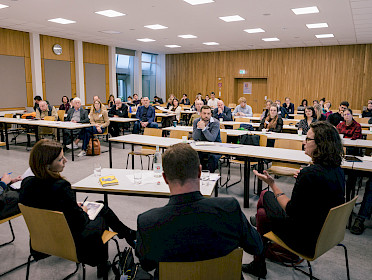
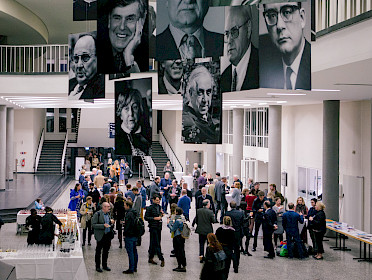
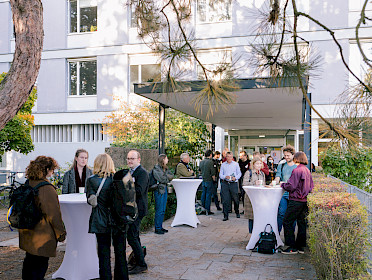
The organizers:
German Association for East European Studies (Deutsche Gesellschaft für Osteuropakunde, DGO e.V.)
The German Association for East European Studies is the largest network within the German speaking realm engaged in research on East European affairs. Since 1913, the DGO has been active as a forum for the discussion and analysis of politics, economics, and culture in Europe’s East. It provides information about current developments, serves as a conduit of knowledge, and promotes dialogue between East and West. DGO members are important multipliers from academia, politics, commerce and industry, cultural life, and the media. The DGO is an independent, non-profit organisation based in Berlin, and a member of the International Council for Central and East European Studies (ICCEES).
The association’s work includes:
- academic conferences and congresses for experts and the general public
- publishing of two academic journals, as well as a variety of regular regional analysis
- networking and the mediation of experts
- the advancement of young academics.
Seven sections within the DGO promote academic exchange in the fields of Economics, Geography, History, Law, Literary and Cultural Studies, Political and Social Sciences, and Religion. Furthermore, over 20 branch offices serve as regional platforms for East-West dialogue.
Institute for East European Studies (Osteuropa-Institut / OEI) of Freie Universität Berlin
The Institute for East European Studies, founded in 1951, is an interdisciplinary regional institute housed at the Freie Universität Berlin. Here on the Dahlem Campus, the Institute’s teaching, research, and advising reflect the dynamics of the numerous transformation processes currently underway in the eastern part of our continent. Eastern Europe is a heterogeneous, conflict-ridden, and – due to the expansion of the European Union – very important region full of issues and challenges. Berlin is the best place to study them. Berlin is not only a meeting place for the cultures, peoples, and markets of East and West: as host to countless East European-focused institutions and initiatives, Berlin is also home to Germany's Eastern Europe expertise. The Institute for East European Studies plays an essential role in this context, with its programs and academic networks in Berlin and Brandenburg as well as in Eastern Europe.
Programs, research and publications of the Institute for East European Studies
-
The Institute for East European Studies' course offerings are concentrated around the multidisciplinary, contemporary-focused master degree program "East European Studies," which was founded several years ago.
-
Research focuses primarily on contemporary topics and their historical roots, particularly those related to the transformation processes in East Central, Southeast, and Eastern Europe. Additional areas of research include cultural questions and the examination of ethnonational conflicts in the East European space.
-
With its approximately 360,000 volumes, the library of the Institute for East European Studies provides an excellent resource for research.
The Centre for East European and International Studies (Zentrum für Osteuropa- und internationale Studien, ZOiS)
The Centre for East European and International Studies (ZOiS) is an independent, international, publicly funded research institute. It focuses on foundational and socially relevant academic research on Eastern Europe and shares the results with policymakers, the media, and the broader public. Detailed analysis of the complex developments taking place in Eastern Europe is only possible with a multi-perspective approach. ZOiS researchers therefore come from a range of disciplines, including political science, sociology, social anthropology, economic and social geography, political economy, theology and cultural studies.
However, ZOiS’s work does not begin and end with research. Our aim is to contribute to and inform public debate and current discourses and offer new perspectives on – and from – Eastern Europe. ZOiS researchers regularly share their findings with policymakers, the media and an interested public, using a variety of events and publication formats for this purpose. Research on Eastern Europe relies on new perspectives and a willingness to engage with unconventional topics. Supporting young academics is also a priority for ZOiS here. And lastly, ZOiS sees itself as a place for networking and exchange for universities, research institutes, think tanks, foundations and other organisations with a connection to Eastern Europe.